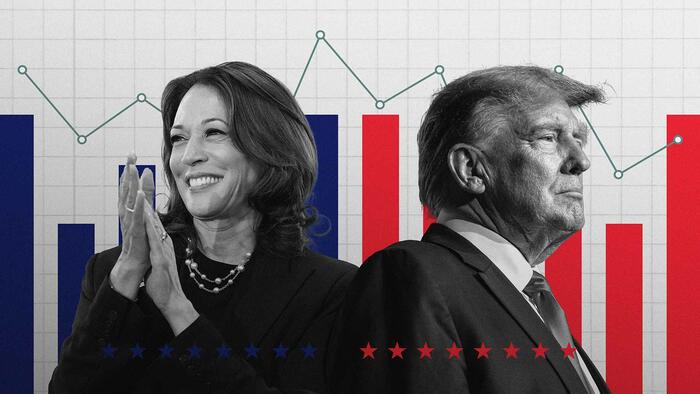Recent polling data from a Gallup survey conducted by Lidia Saad reveals that Vice President Kamala Harris is perceived more favorably than former President Donald Trump on several personal qualities by U.S. voters. Harris boasts a significant advantage over Trump in likability, and also leads in perceptions of having strong moral character, honesty, and trustworthiness. On the other hand, Trump excels in being perceived as a strong and decisive leader, and he is viewed as more capable of getting things done. Notably, both candidates are seen as equally competent in managing the government effectively, displaying good judgment during crises, caring for the needs of people, and having a vision for the country’s future. These insights come in the wake of the Sept. 10 presidential debate, which provided voters with their first opportunity to see the candidates interact, and this context has likely affected the prevailing perceptions.
The survey indicates a slight improvement in Trump’s image compared to the previous election cycles; specifically, the percentage of voters believing he would show good judgment in a crisis has risen to 52%. Furthermore, Trump’s rating for honesty and trustworthiness has grown from 38% in 2016 to a better 41% in 2020, although he still trailed Joe Biden in this regard during that election cycle. Historically, the candidate perceived to be more honest or trustworthy has won in the past three election cycles, illustrating the significance of character traits in voters’ decisions. While Harris leads Trump regarding likability and moral character, she falls short in perceptions of decisiveness and effectiveness as a leader, suggesting that these perceptions could influence voters’ overall evaluation of each candidate.
Interestingly, Harris outperforms Trump regarding campaign management, with a 56% approval rating compared to 46% for Trump. This discrepancy is especially pronounced with independent voters, who rate Harris significantly higher in her campaign efforts than they do Trump. Both candidates, however, are regarded similarly when it comes to their political views, with roughly half the voters considering Trump “too conservative,” while 51% label Harris as “too liberal.” Despite Harris being less often labeled as too liberal compared to President Biden’s candidacy, her political positioning mirrors that of previous Democratic nominees. Conversely, Trump’s characterization as too conservative is notably higher than past Republican presidential candidates, suggesting a shift in the political landscape.
Democratic voters express considerably higher satisfaction with Harris compared to the contentment Republicans feel towards Trump. A notable 85% of Democrats indicate satisfaction with Harris, contrasting sharply with the 73% of Republicans satisfied with Trump. This enthusiasm marks a significant shift from past election cycles, underscoring a more favorable perception of Harris among her party’s supporters compared to Democratic sentiments towards Biden. Moreover, while Trump has maintained steady satisfaction levels among Republicans, this present scenario is indicative of an evolving political climate wherein voter expectations and alignments may play pivotal roles in the upcoming election.
Regarding age perceptions, the data shows a stark difference in how voters view the candidates. While 41% consider Trump too old for the presidency, this is a much lower percentage compared to the two-thirds of Americans who criticized Biden’s age earlier this year. Despite Trump being the oldest Republican nominee in history at 78, his age does not seem as significant a concern among voters. Furthermore, Harris enjoys favorable comparisons with Biden, as she garners more agreement on issues than Biden did prior to his withdrawal from the race. This suggests that her candidacy trends favorably compared to Biden’s past standing, painting a positive picture for her electoral chances.
In conclusion, the Gallup survey suggests a competitive landscape between Kamala Harris and Donald Trump for the 2024 presidential election, with each candidate having distinct strengths and weaknesses. While Harris is seen as more likable and possessing stronger moral character, Trump carries a reputation for decisiveness and efficiency. With both candidates closely matched overall, the election may pivot on voters’ perceptions of character and leadership qualities, alongside more traditional evaluations of political effectiveness. As voters reflect on these metrics, the outcomes may ultimately hinge on how well each candidate can resonate with the public’s expectations about presidential demeanor and performance.

